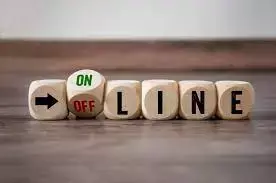- Home
- Medical news & Guidelines
- Anesthesiology
- Cardiology and CTVS
- Critical Care
- Dentistry
- Dermatology
- Diabetes and Endocrinology
- ENT
- Gastroenterology
- Medicine
- Nephrology
- Neurology
- Obstretics-Gynaecology
- Oncology
- Ophthalmology
- Orthopaedics
- Pediatrics-Neonatology
- Psychiatry
- Pulmonology
- Radiology
- Surgery
- Urology
- Laboratory Medicine
- Diet
- Nursing
- Paramedical
- Physiotherapy
- Health news
- Fact Check
- Bone Health Fact Check
- Brain Health Fact Check
- Cancer Related Fact Check
- Child Care Fact Check
- Dental and oral health fact check
- Diabetes and metabolic health fact check
- Diet and Nutrition Fact Check
- Eye and ENT Care Fact Check
- Fitness fact check
- Gut health fact check
- Heart health fact check
- Kidney health fact check
- Medical education fact check
- Men's health fact check
- Respiratory fact check
- Skin and hair care fact check
- Vaccine and Immunization fact check
- Women's health fact check
- AYUSH
- State News
- Andaman and Nicobar Islands
- Andhra Pradesh
- Arunachal Pradesh
- Assam
- Bihar
- Chandigarh
- Chattisgarh
- Dadra and Nagar Haveli
- Daman and Diu
- Delhi
- Goa
- Gujarat
- Haryana
- Himachal Pradesh
- Jammu & Kashmir
- Jharkhand
- Karnataka
- Kerala
- Ladakh
- Lakshadweep
- Madhya Pradesh
- Maharashtra
- Manipur
- Meghalaya
- Mizoram
- Nagaland
- Odisha
- Puducherry
- Punjab
- Rajasthan
- Sikkim
- Tamil Nadu
- Telangana
- Tripura
- Uttar Pradesh
- Uttrakhand
- West Bengal
- Medical Education
- Industry
One-week break from social media significantly improves depression and anxiety

A one-week break from social media significantly improves depression and anxiety, according to a recent study published in the Cyberpsychology, Behavior, and Social Networking.
Social media (SM) has revolutionized how we communicate with each other, allowing users to interact with friends and family and meet others based on shared interests by creating virtual public profiles. In the United Kingdom, the number of adults using SM has increased from 45% in 2011 to 71% in 2021.
The present study aimed to understand the effects of a 1-week break from social media (SM) (Facebook, Instagram, Twitter, and TikTok) on well-being, depression, and anxiety compared with using SM as usual. We also aimed to understand whether time spent on different SM platforms mediates the relationship between SM cessation and well-being, depression, and anxiety. We randomly allocated 154 participants (mean age of 29.6 years) to either stop using SM (Facebook, Twitter, Instagram, and TikTok) for 1 week or continue to use SM as usual. At a 1-week follow-up, significant between-group differences in well-being (mean difference [MD] 4.9, 95% confidence interval [CI] 3.0–6.8), depression (MD −2.2, 95% CI −3.3 to −1.1), and anxiety (MD −1.7, 95% CI −2.8 to −0.6) in favour of the intervention group were observed, after controlling for baseline scores, age, and gender. The intervention effect on well-being was partially mediated by a reduction in total weekly self-reported minutes on SM. The intervention effect on depression and anxiety was partially mediated by a reduction in total weekly self-reported minutes on Twitter, TikTok, and TikTok alone, respectively.
The present study shows that asking people to stop using SM for 1 week leads to significant improvements in well-being, depression, and anxiety. Future research should extend this to clinical populations and examine effects over the longer term.
Reference:
Taking a One-Week Break from Social Media Improves Well-Being, Depression, and Anxiety: A Randomized Controlled Trial by Jeffrey Lambert et al. published in the Cyberpsychology, Behavior, and Social Networking.
https://www.liebertpub.com/doi/full/10.1089/cyber.2021.0324
Keywords:
one-week, break, social media, improvement, depression, anxiety, Jeffrey Lambert, George Barnstable, Eleanor Minter, Jemima Cooper, and Desmond McEwan, Cyberpsychology, Behavior, and Social Networking
Dr. Shravani Dali has completed her BDS from Pravara institute of medical sciences, loni. Following which she extensively worked in the healthcare sector for 2+ years. She has been actively involved in writing blogs in field of health and wellness. Currently she is pursuing her Masters of public health-health administration from Tata institute of social sciences. She can be contacted at editorial@medicaldialogues.in.
Dr Kamal Kant Kohli-MBBS, DTCD- a chest specialist with more than 30 years of practice and a flair for writing clinical articles, Dr Kamal Kant Kohli joined Medical Dialogues as a Chief Editor of Medical News. Besides writing articles, as an editor, he proofreads and verifies all the medical content published on Medical Dialogues including those coming from journals, studies,medical conferences,guidelines etc. Email: drkohli@medicaldialogues.in. Contact no. 011-43720751


